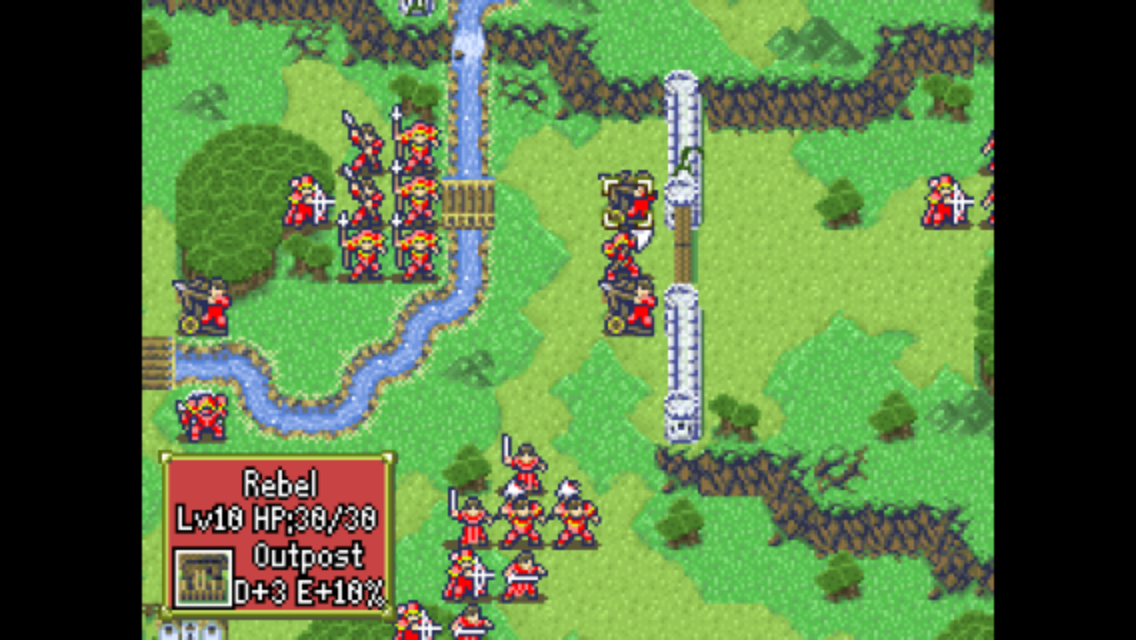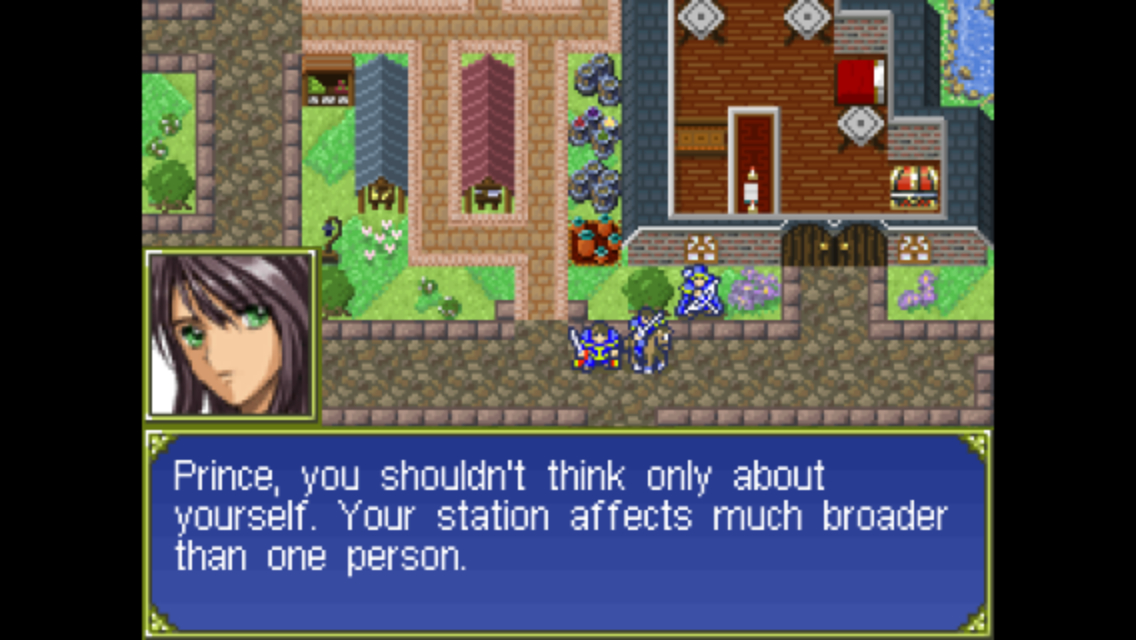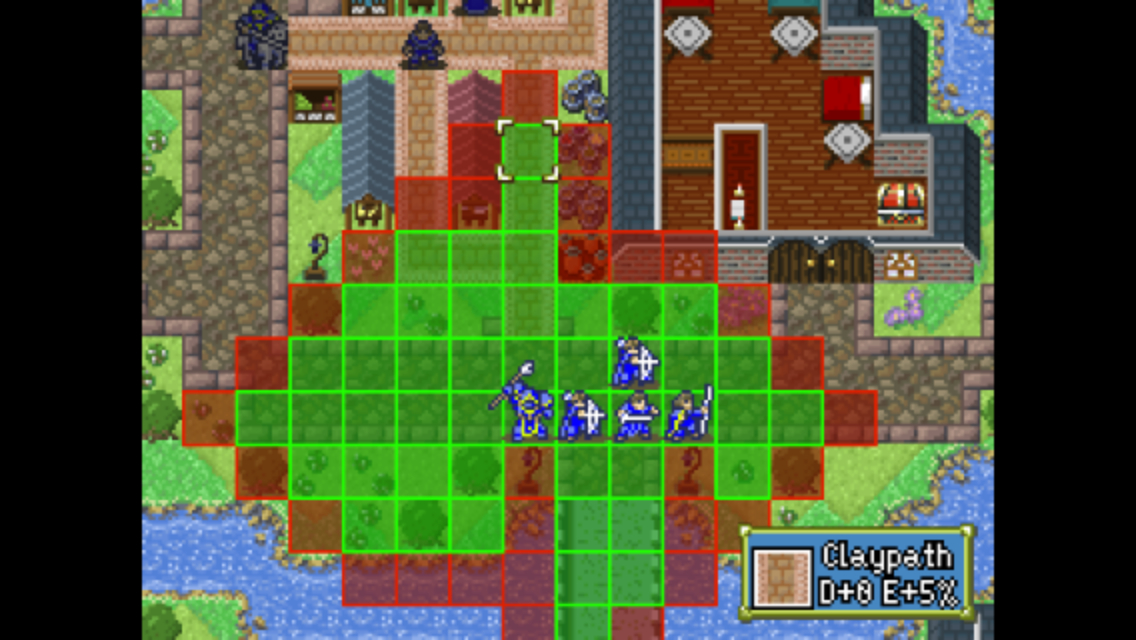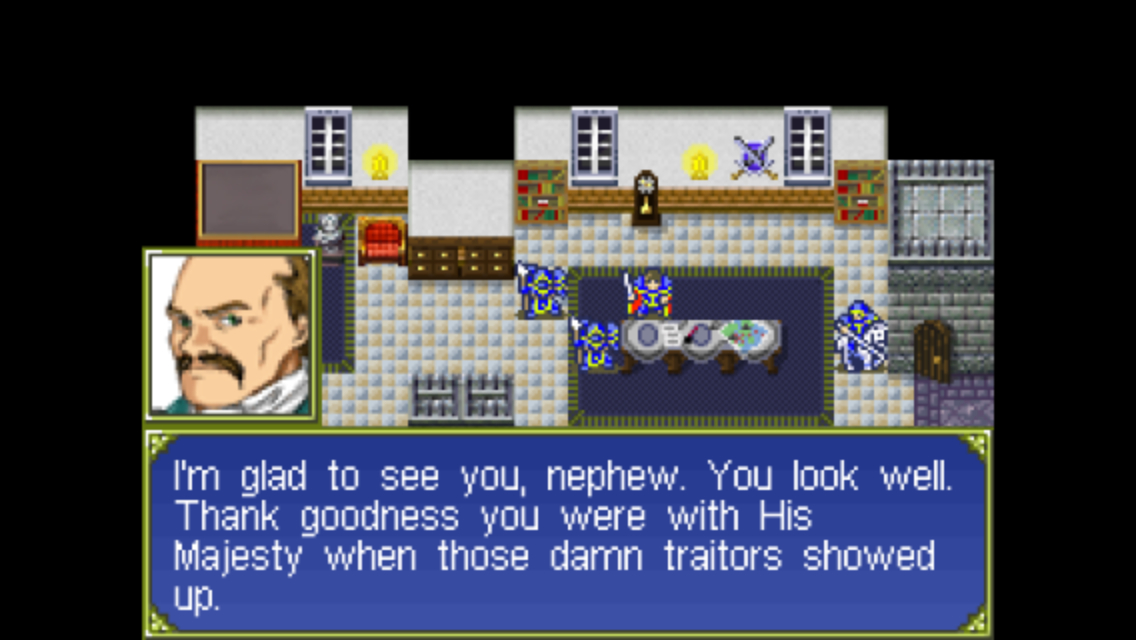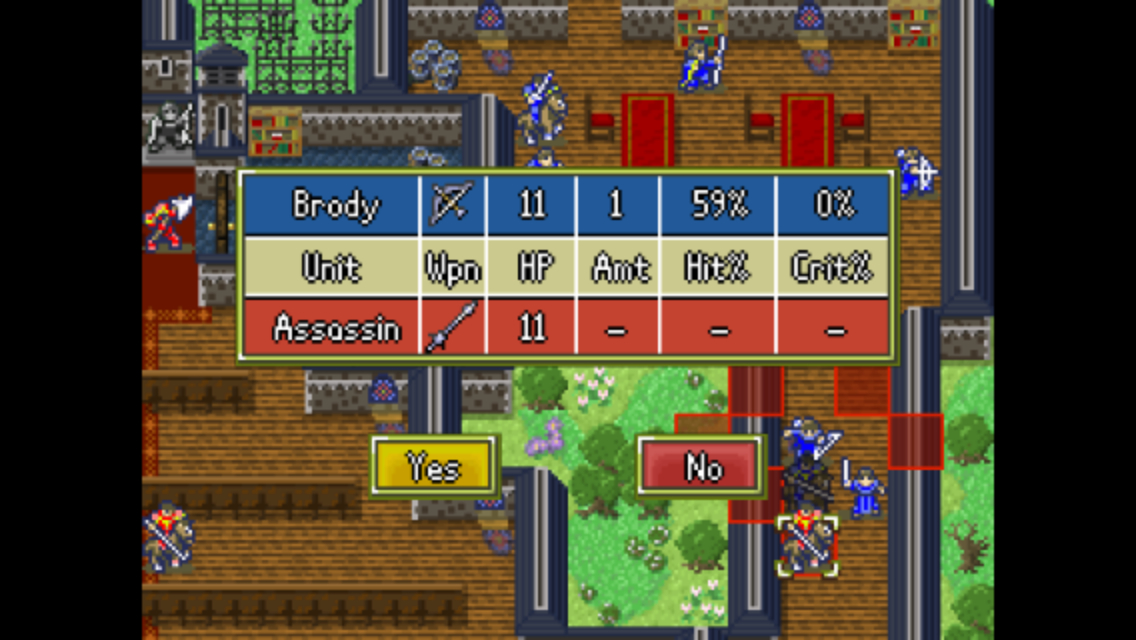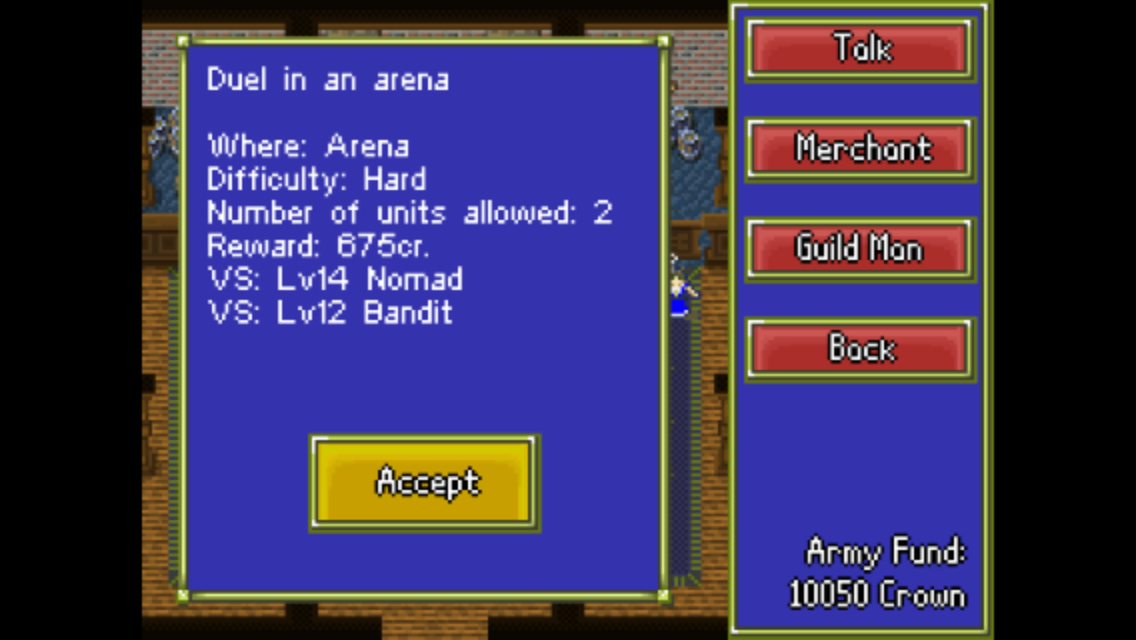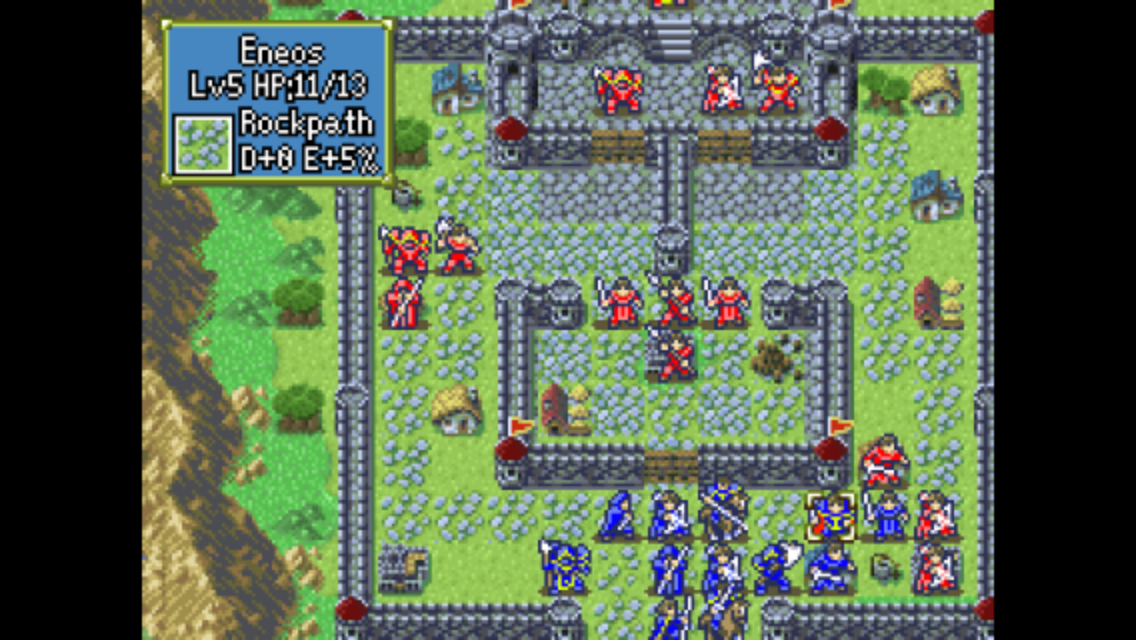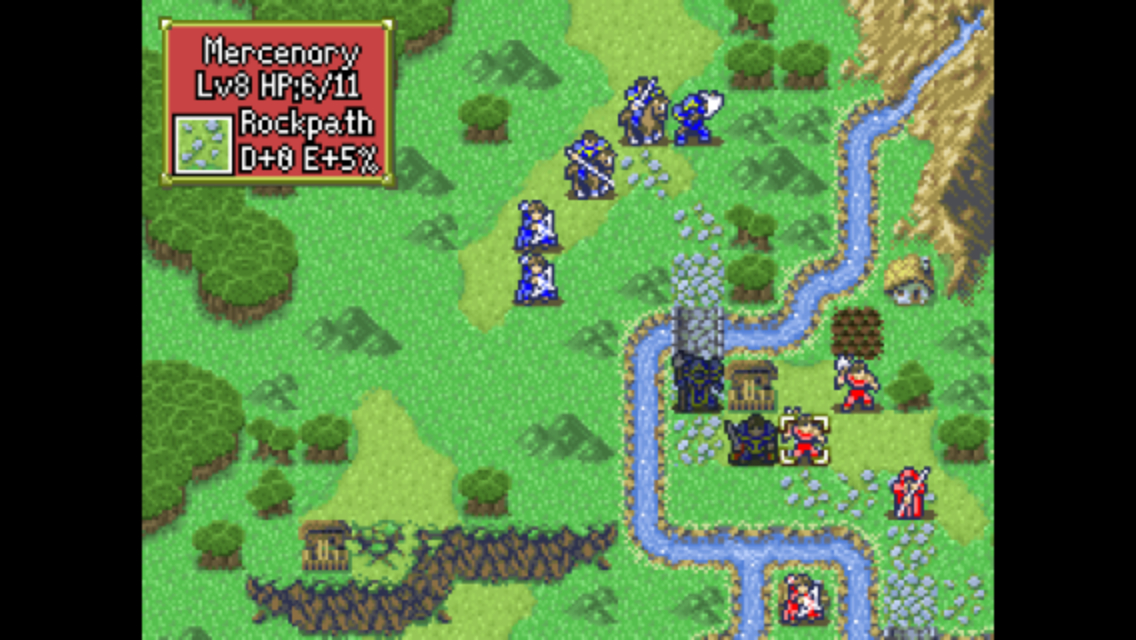 Hello, gentle readers, and welcome to the RPG Reload, the weekly feature where no losses are accepted when we can just reload. Each week, we take a look at an RPG from the App Store’s past. It’s a chance to revisit an old favorite, reflect on how well it holds up, and take a deeper dive than our reviews typically allow for. With a genre so diverse that bloody feuds can start just by asking for definitions, it’s important to present a balanced plate of games from week to week. I’ll always do my best on that front, but just to keep me from going mad with power, I turn the choice over to you fine readers once per month. Simply make your suggestion by commenting below, posting in the Official RPG Reload Club thread in the forums, or tweet me at @RPGReload and if the RNG gods favor you, your selection might pop up in the June reader’s choice article. Why June? Because May’s article is next week, and it’s already been decided. As per a suggestion from reader Jonathan Leschinski, next week’s article will feature none other than the legendary Final Fantasy 4 ($14.99). Mark your calendars, friends. It’s going to be a big one!
Hello, gentle readers, and welcome to the RPG Reload, the weekly feature where no losses are accepted when we can just reload. Each week, we take a look at an RPG from the App Store’s past. It’s a chance to revisit an old favorite, reflect on how well it holds up, and take a deeper dive than our reviews typically allow for. With a genre so diverse that bloody feuds can start just by asking for definitions, it’s important to present a balanced plate of games from week to week. I’ll always do my best on that front, but just to keep me from going mad with power, I turn the choice over to you fine readers once per month. Simply make your suggestion by commenting below, posting in the Official RPG Reload Club thread in the forums, or tweet me at @RPGReload and if the RNG gods favor you, your selection might pop up in the June reader’s choice article. Why June? Because May’s article is next week, and it’s already been decided. As per a suggestion from reader Jonathan Leschinski, next week’s article will feature none other than the legendary Final Fantasy 4 ($14.99). Mark your calendars, friends. It’s going to be a big one!
That’s next week, however. This week, we’re talking about something a little smaller in terms of influence, but still a worthy game in its own right. Partia: The Broken Lineage ($3.99) is in some ways an unusual game by App Store standards. For starters, it actually got a proper sequel in the form of Partia 2: The Pretenders War ($5.99), released in October of 2014. That’s a rare case among indie RPGs, who are usually quite quick to promise a follow-up but almost never deliver one. It’s a popsicle-sticks-and-glue production, but somehow feels pretty solid in its overall construction. In a lot of ways, it’s a naked clone, something that should cheapen the game, but it’s so earnest in its appreciation of its inspiration that it’s difficult to come down too harshly on it. Unfortunately, one way it wasn’t unusual by App Store standards was in its market performance. Although it charted fairly well initially, it didn’t seem to do as well as the developer had hoped.
Let’s not dwell on the negatives, though. We’re here to toast something cool, and that’s just what we shall do. Partia was released on November 21st, 2012 after a three-year development cycle that seems to have had as much go wrong as it did right. You can read some of the finer details in the game’s post-mortem on developer Imago’s blog, but given Partia was their first game, you can probably guess at some of the problems. The scope was too ambitious, there were problems getting reliable team members who fit in the game’s budget, and of course that usual bane of indie game development, life, had a few interesting cards to play, too. In the final year of development, things finally started to come together, and even a failed Kickstarter didn’t stop it from reaching the finish line. The game released with a few hiccups but reasonable praise overall, and the developer made a few really good updates to address various criticisms.
Partia is a turn-based strategy game in the Japanese style, similar to previous RPG Reload subjects like Shining Force ($0.99) or Final Fantasy Tactics ($13.99). The most obvious comparison for those who venture outside the Apple ecosystem would be Nintendo’s Fire Emblem, a series that seems to come up an awful lot in these articles. Granted, a little resemblance is to be expected. Fire Emblem is, after all, one of the foundations of the genre, the grandfather from which almost all other Japanese SRPGs sprang forth from. It’s difficult to make a game like this and not call back to the adventures of Marth and friends. Where Partia is a bit different from others is in that it barely even tries to avoid that. This is essentially a fan homage to Fire Emblem, and if nothing else, it fills that role nicely on the App Store. There may be a day when the real Fire Emblem arrives to compete with Partia, but I suspect Imago themselves wouldn’t be sad if that happened.
The developer is quite candid about its inspiration. One of the two main members of Imago maintains the company’s blog, and he made a list of his influences. The top three games on the list were the Super Famicom Fire Emblem games, with The Genealogy Of Holy War topping the list. The next couple of games mentioned are the PlayStation 2 game Berwick Saga, developed by the creator of the Fire Emblem series, and Konami’s Suikoden 2, which hopefully needs no introductions. The gameplay influence is clear, but it’s also interesting to spot the common points of each game’s story. Our friends at Imago clearly like their RPGs to have dense political maneuvering and a fair bit of tear-jerking. That certainly comes through in the plotting of their games.
When I wrote the review of Partia 2 for TouchArcade, I came down pretty hard on the series for its adherence to its source. Harder than I meant to, in hindsight. I actually quite like both Partia games, though I’d recommend them cautiously for reasons I’ll get into shortly. The thing is, the Fire Emblem series is still alive and quite well. Its developers, Intelligent Systems, are very good at what they do and have decades of experience at this point. They also have the backing of one of the biggest and most prestigious publishers in the world. In short, you’re probably not going to beat them at their own game, so if you’re going to go through the gargantuan effort of actually putting a game together, why not make it your own? That’s my line of thinking, but in some ways, it’s not fair. Developers can and should make the game they want to make, and if that happens to be a fun, non-infringing love letter with minor alterations, then so be it.
That all said, Partia does have some identity of its own. The story is ambitious and shows clear signs of being hacked down into something within the realm of possibility, but it certainly isn’t lifted from Fire Emblem. The number of stages is far lower than just about any Fire Emblem game, but in exchange, each one is quite a bit larger, more complex, and filled with larger numbers of enemies than you would find in that series. Having only nine stages ends up making for a very different feeling than the games it apes. The pacing, the strategy, and the challenge are all very different than any of the Fire Emblem games I’ve played. As ever, the more similar two things are, the more interesting it is to see what effects their small differences have on the whole.
Before I go into those, however, I’ll give you a crash course on the basics. Partia features nine stages, with story segments stitching them together. There are towns between stages where you can stock up on items or gear, do arena battles for extra cash, set up your battle units, or meet new characters, among other things. The battles are the bulk of the game, however. They take place in various grid-based locations and set a particular number of your characters against set waves of enemies. Generally, your goal is to take out all of the enemies, but some stages have other goals or sub-goals to consider. The game is sometimes pretty bad at communicating those goals clearly, so you’ll have to think carefully. If a certain early stage seems to have enemies that are way too strong for your level, perhaps you’re not meant to defeat them all, for example.
The standard battle rules of Fire Emblem are followed almost to a tee in Partia. You move all of your characters, then the computer moves theirs. Each character can usually move then attack on each turn, in that order. Characters come in various jobs that use various weapons, and certain weapons are more effective against others. Every attack earns at least one counter-attack from the defender, and each swing degrades your weapon until it finally breaks, potentially leaving you defenseless on the battlefield. Death is permanent, and critical hits or unfortunate misses can and will ruin your day according to the whims of the RNG gods. The story will carry on without most characters, but if you lose your hero in battle, it’s an instant game over. Certain enemies can be recruited to join your team under the right circumstances. You can do a suspend save mid-battle, but hard saves can only be made between stages, so there’s no chance of save-scumming your way through.
Coming back to how the considerably smaller stage count affects the game, I first have to go back to Fire Emblem one more time, this time to talk about psychology. Fire Emblem is famous for many things, but as far as gameplay goes, it’s likely most notable for that perma-death feature. One badly planned move, one unforeseen enemy action, one unfortunate critical hit, and you lose somebody for good. They’ll sputter their last words, and that’s that. It’s a powerful thing, and working as it’s intended, it means every player will end up with a slightly different and highly personal story. Here’s the reality, though. No one likes to lose a character, especially when we’re looking down the barrel at a very long game and have no idea what lies ahead. Fire Emblem anticipates this in its design, making sure the game gives you more than enough of each type of character to incur a few losses along the way. It also doesn’t allow you to make a permanent save mid-battle, so if you want to erase the consequences of your luck or bad planning, you’ll have to start the whole battle over. Together, those things should provide enough incentive for people to accept the consequences, but in practice almost everyone will utter an expletive and restart the whole battle.
That’s to be expected, of course. Gamers tend towards perfectionism, and RPG players perhaps more than any others. It’s also too bad, because Fire Emblem is a much better experience if you accept your losses and carry on with the story. The developers ended up waving a white flag in recent titles and began allowing players to choose a difficulty where death only knocks the character out of that particular battle. There’s strong merit in the idea, though, and the funny thing is that when I play Partia, I play it purely, taking the losses as they come even though the overall cast is smaller. Why? Well, it’s a combination of things. The smaller number of stages means I have less anxiety about making it through the rest of the game. The larger size and complexity of those stages makes the prospect of starting over a lot more painful. With more compact pacing, it’s easier to get a replacement unit up to speed.
So I take the loss, I move on, and that’s fantastic. It creates stories the developer might never have imagined. The first time I played the stage where the hero and his brother are ambushed in the castle gardens, I tried to fend off every enemy. My team suffered heavy losses in the process, but I didn’t restart. So here’s how my story goes for that chapter: a well-organized and carefully-executed assassination attempt on the royal family of Grana was barely staved off. Before the guards could be alerted, many of the prince’s friends and trusted companions had fallen trying to protect their liege, their commander, and their friend. Brave Sir Thomas perished at the last moment, while the archer corps whose lives he saved narrowly dodged the reaper themselves. It was an incredibly dark day for the kingdom, and it filled the prince with a new resolve. The remnants of his little band carried forward, met new allies, and somehow moved on. That’s my story, and mine alone.
It’s not all good, of course. Even though there aren’t many stages, the story spans a very long period of time. Knowing the game’s development background, it’s clear there was a lot more planned at one point. Even if we didn’t know that, it would be easy enough to guess thanks to the way the story kind of hops around and rarely fills in important details. It really hurts my investment in the actual planned story when the scene wipes and suddenly a friend is now an enemy with no set-up at all. The short running time also wreaks a bit of havoc on the difficulty curve. Partia gets very hard, very fast, and spends little time explaining itself. That’s fine if you’re a Fire Emblem veteran, but if you aren’t, you’re going to find yourself in deep pretty quickly.
At the very least, there aren’t any filler stages. Just about every stage has its own little quirk and interesting set-up. In one stage, you’re laying siege to a castle, in another you’re defending one. Sometimes you’re battling in the back alleys of a port town, while other times you’re fighting by the proverbial candlelight underground. The developer even used Partia‘s ability to put a ton of characters on-screen to interesting use, having a bunch of defenseless civilians getting in your way on one map. You can slaughter them if your conscience allows you to. If you don’t want to, the map can be a lot more difficult. There are no gameplay consequences for killing them, but the game will make you feel pretty bad about it. That’s not the only place where it will shame you for choosing pragmatism over humanity, either. These moments are some of the better parts of Partia‘s otherwise confusing, chopped-up, and sometimes poorly-related story. I appreciate, however, that if the game could only have nine levels, they’re at least very good ones.
A few points to potential players, however. Make sure you turn the speed options up to their fastest settings, because by default Partia is a very slow game. Be careful about the mid-battle suspend saves. While it will often remember if you have to leave the app and come back, it seems to occasionally lose your spot unless you actually make a proper suspend save from the battle menu. The game isn’t optimized for wider or larger screens, and it probably never will be. The art design is also very inconsistent due to the circumstances of the game’s development. I like that the game allows you to play in portrait or landscape mode, but realistically, neither is optimal. The landscape mode lacks a cancel button, making certain actions a bit more awkward than they should be, while the portrait mode features a small play window with little buttons that aren’t the easiest things to use, depending on which device you’re on. The iOS version of the game appears to be a couple of versions behind the Android port and is missing certain features. I’m not sure if the developer means to fix that one day, but there’s no indication they intend to come back to the first Partia, with the last update nearly two years ago.
Sure, Partia isn’t a terribly original game, and it’s not as good at being Fire Emblem as Fire Emblem is, but it’s still really fun and has a lot going for it. As long as you’re patient with some of its weak points, you’ll probably have a good time here. It’s not quite as fun on replays as it is the first time since you’ll already know which strategies to use, but its brevity nevertheless makes for an enjoyable, no-nonsense, strategy RPG experience. It’s worth a reload every couple of years or so, at least. I have a feeling the second game didn’t exactly light up the registers, but I hope Imago one day gets to make a trilogy of this series. As for Partia 2, that’s an article for another day, I think.
That’s just my take on Partia, though. What are your thoughts on it? It’s interesting how when the game first went into development, things were looking pretty bleak for Fire Emblem‘s future outside Japan. Now, Fire Emblem is probably more popular worldwide than it’s ever been. Is there still a place for Partia? You know what to do! Comment below, post in the Official RPG Reload Club thread, or tweet me at @RPGReload with your thoughts. Also, it’s about time for another episode of the RPG Reload Podcast. With any luck, that should be available for your listening pleasure on Monday, but who knows how things might go in this wacky world of ours? Either way, I’ll be back next week to talk about Final Fantasy 4. Thanks for reading!
Next Week’s Reload Hint: You spoony bard!
